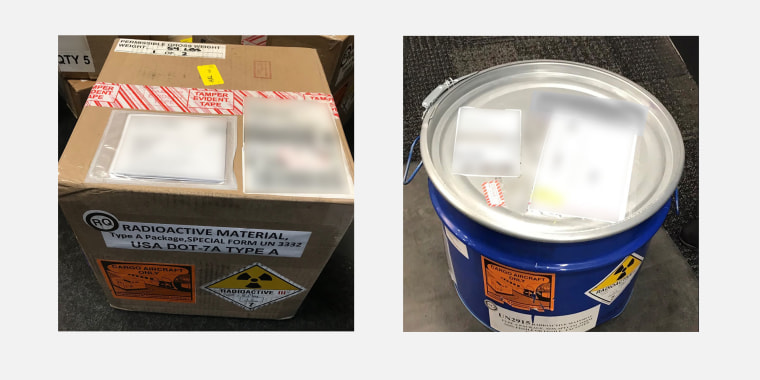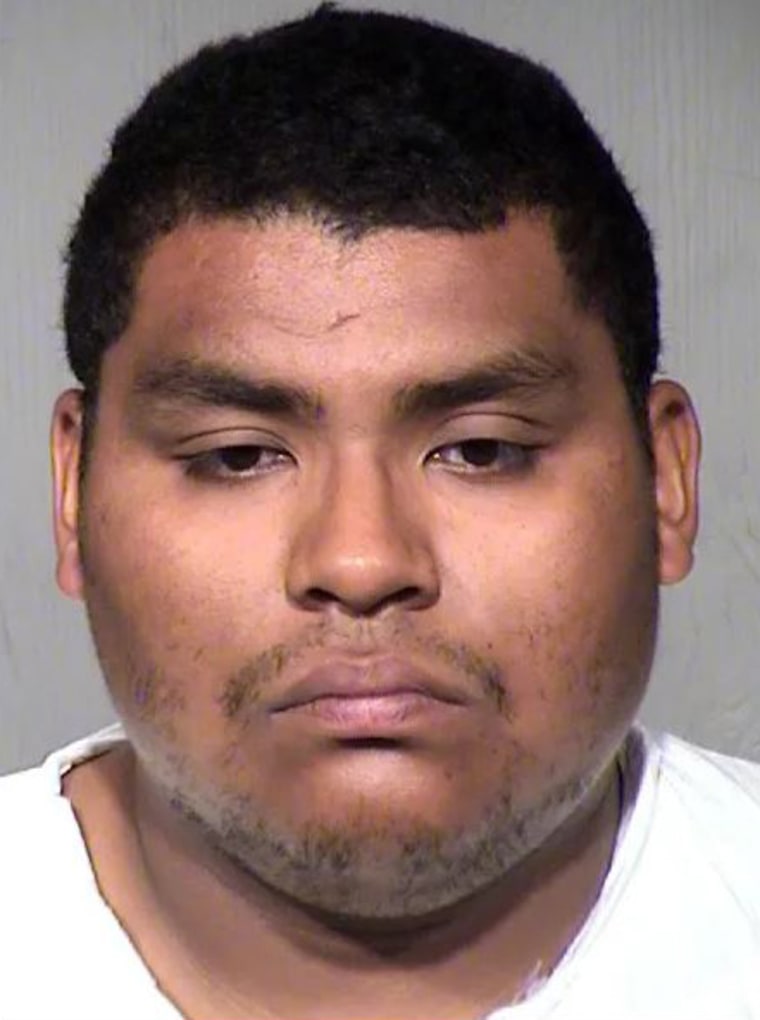All it takes to obtain enough radioactive material to build a dirty bomb is a fake company and forged licenses, according to a new government watchdog report.
The report by the Government Accountability Office, exclusively obtained by NBC News, details how easily a bad actor could get their hands on the kind of materials that could then be used to cause “hundreds of deaths from evacuations and billions of dollars of socioeconomic effects.”
The GAO, a nonpartisan congressional auditing agency, called on the agency responsible for controlling the distribution of radioactive material, the Nuclear Regulatory Commission (NRC), to implement more stringent screening methods immediately.
“We already knew that the threat of a dirty bomb attack in the United States is real,” said Rep. Tom Malinowski, D-N.J., a member of the House Homeland Security Committee, which commissioned the report.
“There are actual terrorist groups, including neo-Nazi groups in the United States, that have been trying to get a dirty bomb to launch real attacks against civilians,” he said. “And now the GAO is telling us that it’s incredibly easy for pretty much anybody to get the materials in the United States needed to make a dirty bomb.”
In a statement to NBC News, the NRC said it is taking action related to the issues identified in the report, including immediately communicating with the manufacturers of the radioactive substances and expediting a rule change to better verify purchasing licenses.
But it said the report’s findings do not warrant an emergency change in the rules.
“Imposing immediate security requirements would risk unintended impacts to important and safe medical, academic and industrial uses of these materials,” the agency added.

Radioactive materials are used throughout the U.S. for a variety of purposes, including to help treat cancer, sterilize food and medical instruments. But, given the potential for them to be used to create a dirty bomb, which uses conventional explosives to spread radioactive material, the NRC regulates their sale and use.
The need to closely guard the distribution of radioactive substances is particularly acute now, according to the report. National Nuclear Security Administration officials at the Energy Department told GAO investigators that current assessments of the “threat environment show an increasing interest in using radioactive material for making a dirty bomb,” the report says.
The NRC requires a paper license to buy lower quantities of radioactive material. But GAO investigators found that the licenses can be altered and used to make illegal purchases of the materials.
The investigators tested the NRC’s system by setting up shell companies and forging copies of a license. They reached out to two different vendors in the U.S. and soon received invoices for the purchases. After the vendors received payment, they shipped the materials to the investigators posing as company executives, the report says.
The investigators ultimately received a category 3 amount of radioactive material, which is less than categories 1 or 2 but still enough to cause significant damage if dispersed using a dirty bomb. Stricter rules apply to purchasing a larger amount of radioactive material, but the investigation found that a malign actor could elude them by “purchasing multiple category 3 quantities from multiple vendors,” the report says.
In a statement, Rep. Bennie Thompson, D-Miss., the chairman of the House Homeland Security Committee, called on the NRC to take action.
“The NRC has the authority to address the vulnerabilities identified in the report, and I urge them to take quick action to do so,” he said. “This is a clear national security issue that the federal government must remedy.”
The U.S. has seen cases of radioactive material falling into the wrong hands.

In April 2019, a Phoenix man, Jared Trent Atkins, stole three devices containing radiological material from his workplace and then holed himself up inside his home in a standoff with police. He ultimately surrendered and was sentenced to 15 years in prison.
The new GAO report isn’t the first it has produced on radioactive material.
In March 2006, it released a report that showed how it was possible to transport unlicensed radioactive material through ports of entry into the U.S. using a fraudulent license. U.S. Customs and Border Protection subsequently took action to address the issue, the GAO said.
And in a 2016 investigation, investigators secured commitments to purchase a dangerous quantity of radioactive material after setting up shell companies and altering a valid license. The NRC has yet to implement any of the recommendations from that report, the new report says.
Didi Martinez and Kristen Powers contributed.
Source: | This article originally belongs to Nbcnews.com








